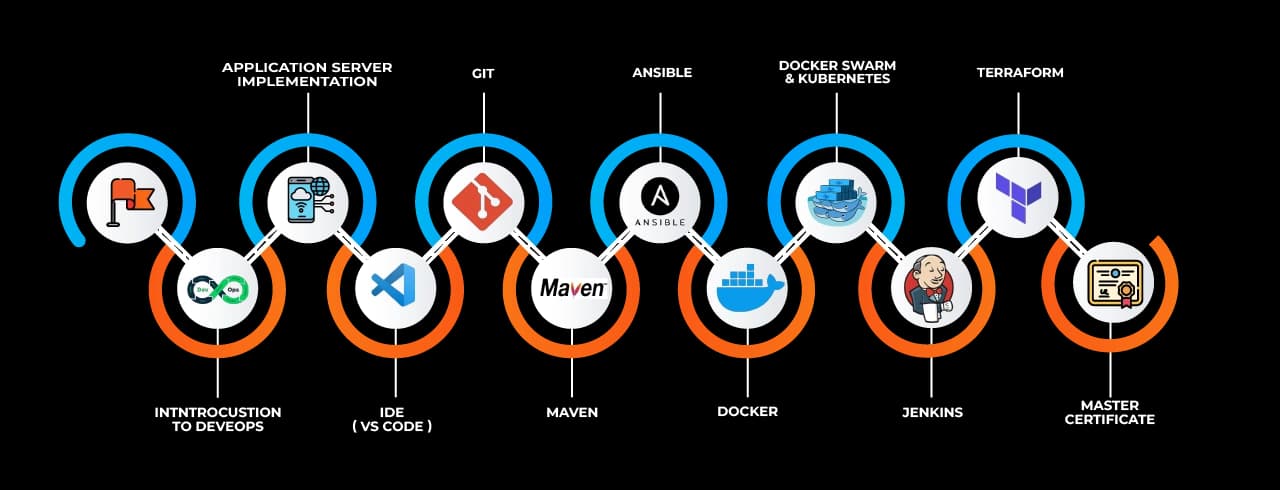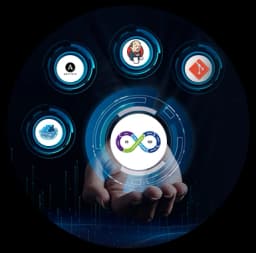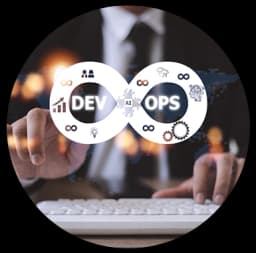DevOps Training in Ahmedabad
 Bridge the Gap Between Development & Operations with Hands-On Training
Bridge the Gap Between Development & Operations with Hands-On Training Learn To Master DevOps Tools and Automation for Seamless IT Operations
Learn To Master DevOps Tools and Automation for Seamless IT Operations Unlock High-Paying DevOps Roles with Industry-Focused Course at SevenMentor
Unlock High-Paying DevOps Roles with Industry-Focused Course at SevenMentor
CONSULT WITH
OUR ADVISORS
- Course & Curriculum Details
- Flexible Learning Options
- Affordable Learning
- Enrollment Process
- Career Guidance
- Internship Opportunities
- General Communication
- Certification Benefits
Request Call Back
Learning Curve for DevOps

Why Choose SevenMentor DevOps
Empowering Careers with Industry-Ready Skills.
Specialized Pocket Friendly Programs as per your requirements
Live Projects With Hands-on Experience
Corporate Soft-skills & Personality Building Sessions
Digital Online, Classroom, Hybrid Batches
Interview Calls Assistance & Mock Sessions
1:1 Mentorship when required
Industry Experienced Trainers
Class Recordings for Missed Classes
1 Year FREE Repeat Option
Bonus Resources
Specialized Pocket Friendly Programs as per your requirements
Live Projects With Hands-on Experience
Corporate Soft-skills & Personality Building Sessions
Digital Online, Classroom, Hybrid Batches
Interview Calls Assistance & Mock Sessions
1:1 Mentorship when required
Industry Experienced Trainers
Class Recordings for Missed Classes
1 Year FREE Repeat Option
Bonus Resources
Fastest 1:1 doubt support
Flexible EMI Plans
Adaptive LMS
Free Wifi Facilities
Flexible Scheduling
Ongoing Career Support
Placement Drives
GitHub Project Implementations
Real World Topics
5/5 rating for 99% doubt Solutions
Be Different With Master Certificate
Latest Market Technology & Practical Training
Resume Building Session & Job Portals Training
Enhanced Capstone Projects for learning
Stand Out with an impressive Certificate
Weekday and Weekend Batches
Workshops & Seminars with Industry Experts
Unlimited Interview Calls
AWS Cloud Project Deployments
Live Quizzes
Resolve doubts any time through chat, voice notes, calling or meeting with instructors.
Curriculum For DevOps
BATCH SCHEDULE
DevOps Course
Find Your Perfect Training Session
Feb 15 - Feb 21
2 sessionsFeb 22 - Feb 28
1 sessionsMar 1 - Mar 7
1 sessionsLearning Comes Alive Through Hands-On PROJECTS!
Comprehensive Training Programs Designed to Elevate Your Career
No active project selected.
Transform Your Future with Elite Certification
Add Our Training Certificate In Your LinkedIn Profile
Our industry-relevant certification equips you with essential skills required to succeed in a highly dynamic job market.
Join us and be part of over 50,000 successful certified graduates.

Course Content
Frequently Asked Questions
Everything you need to know about our revolutionary job platform
What topics are covered in the DevOps Course?
Why choose SevenMentor Institute for DevOps training?
What tools and technologies will I learn in the DevOps Classes?
Does the DevOps Certification include real-world projects?
How long is the DevOps Course ?
What career opportunities are available after completing the DevOps Classes?
Does SevenMentor Institute in Pune offer placement support?
Is this DevOps Course suitable for beginners?
What is the teaching methodology at SevenMentor Institute in Pune?
How does DevOps Certification add value to my career?
Can I take DevOps Classes online?
What makes SevenMentor the best institute for DevOps training?
Will I receive study materials during the DevOps Certification program?
Does the DevOps Course cover advanced topics like DevOps and automation?
How does SevenMentor Institute in Pune help with career growth after the course?
Can I take DevOps Classes online?
Explore Other Demanding Courses
No demanding courses available at the moment.
Debug: courses prop type: object, isArray: yes, length: 0




